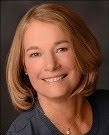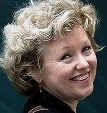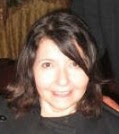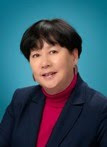The Question
Every professional writer fields this question with some regularity. Of course, fewer people ask “How did you get started in medicine?” Or “How did you begin as a software engineer?” They don’t ask because most people more or less know the answer. You go to school, you intern, you move into an entry level position, and you work up from there.
Writing for a living is a more mystifying process, it seems. It is somewhat akin to being an artist, an actor, a musician, or a filmmaker. People may take all the right steps but some find themselves working in a large public arena and some don’t. In fact, a high percentage don’t, far higher than software engineers that’s for sure.
I meandered down this path of thinking when I took a second look at San Diego Writing Women’s tagline: “We live therefore we write.”
We came up with this slogan at one of our earliest meetings. It sat well enough with the group that we stuck with it. For me, it perfectly summed up my feelings about my editorial career.
Writing always came naturally to me. As a child, I used it to re-envision my family into the parental unit of my dreams. In high school, I leapt at any writing assignment involving descriptions –of people on the street, how it felt to step inside a cave (even though I had never been in cave), the desk in front of me, the pen in my hand, whatever. It didn’t matter if I had only glimpsed the person or if the object was completely inanimate, I was more than happy to imbue them with all types of emotion, mystery and romance. All I needed was a starting point and my imagination took it from there.
In college, while studying mass media as mass culture, I composed critiques and analysis of photography, film, and finally, my greatest area of interest, music.
My Answer
My love for music and writing coalesced out of a combination of determination, desire, and the need to meet my rent. In the summer before my last year of graduate school, my funds were exhausted. I was living on a research and graduate assistant stipend. The student employment services offered me a three month “communications consultant” position for a social service agency that actually paid pretty well. But I shook my head no. I was going to work in media this summer–even if I had to starve to death.
I called the community weekly newspaper the first week in June. They put me on the political beat covering local candidates running for election. They paid $20 an article. That same week, one of my favorite musical artists, Roxy Music, was performing in town. No way could I afford to buy a ticket. So I suggested that I review the concert. The paper agreed and paid me $15 as well. In three weeks, I reviewed three concerts and covered three local candidates. Great for attending the concerts I wanted to see. Not so great for income.
July rent was looming.
Eager for more story opportunities, I decided to attend a free concert called Rock Against Racism in Chicago. I could combine political issues and music in this article, I thought. I hopped a ride with friends, reviewed the performances and interviewed people in the crowd. I had the story but no outlet.
It was now July 1.
I wracked my brain. Who might be interested in a story with this kind of scope? I picked up the phone and asked for the editor who oversaw the music coverage at The Milwaukee Journal, the major daily paper in Wisconsin. At the time, it ranked among the Top 10 newspapers in the U.S. I got the editor on the phone and pitched him hard on what I thought was this great story. I heard a sigh at the other end.
“We are not interested in a concert that happened in Chicago two days ago,” he said. “But look, we are always looking for a backburner reviewer. Do you review rock concerts?”
Yes! Yes, I do, I pronounced. The editor told me to send him three sample concert reviews. That was perfect because all I had written were the three concert reviews. I got a trial assignment and three weeks later the paper’s regular rock critic decided to leave. By the end of that summer, I was ensconced in a big time journalism career, which later included seven years at The San Diego Union. From there, I wrote full time for national magazines, then for major internet outlets, and now for books.
So, yes, I went to school, started at the entry level and worked my way up from there. Except for me, my career launch happened in a very condensed period of time. And all my efforts could have gone nowhere. The community newspaper may not have wanted rock concert reviews; The day I had the chutzpah/desperation to call the The Milwaukee Journal might have been the day the editor was on vacation. I could go on about all the opportunities that came my way that could have detoured.
I always said my career as a writer found me rather than vice versa. Something was magical in the circumstances around it: Something that said “Hey kid, this time around, you get to write.”
As the big 2012 new year debuts, I like recalling that destiny always meets us more than halfway.
I live, therefore I write? Really.
DIVINA INFUSINO is the author of Day Trips From Orange County, an often personalized account of Southern California’s iconic and idiosyncratic locales, natural and cultural sites, hotels, spas, shopping areas and restaurants. She is also a co-author of The Love Response and Rock Gods. She has developed and consulted on numerous books over the past eight years, including those by bestselling self-help author Debbie Ford and wellness author Dr. Ellen Cutler. Divina has worked as a staff entertainment writer for The Milwaukee Journal and The San Diego Union, was a cultural commentator for KPBS Radio, and has also been published inRolling Stone, The Economist, TV Guide, Entertainment Weekly, The Los Angeles Times, Reuters,The New York Times Syndicate, Harper’s Bazaar, Salon.com, and HuffingtonPost.com. Among her celebrity interview subjects are Madonna, Julia Roberts, Bono, Bob Dylan, George Harrison, Deepak Chopra, Robert Redford, Tom Hanks, Kate Bosworth, Stephen Covey, Norman Mailer, Bishop Desmond Tutu, and Keith Richards. She earned her bachelor’s in English and Communications from Marquette University and a master’s in mass media analysis from the University of Wisconsin.













0 comments:
Post a Comment